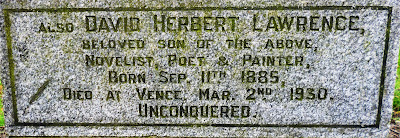Nicholas Philibert believes in making cinema out of everyday things, the apparently banal, and he sees the classroom as an ideal way to illustrate this. He states that he hasn't made this movie about, but with: it's a meeting place between the audience and the people on screen, not a slice of life but a construction, a story. And he feels that he's turning his back on conventional documentary film by not being didactic: we are not seeing something made by an expert, but by someone who has no answers to give.
Être et avoir (translated as To Be and to Have) was shot over ten weeks from December 2000 through June 2001 in a rural school in Saint-Étienne-sur-Usson, in Puy-de-Dôme, the Auvergne, France. There is just one class of thirteen kids up to eleven years of age, with the teacher Georges Lopez, who is reaching retirement after 35 years teaching, the last 20 of which have been at this school. He uses rather traditional teaching methods but has the respect of his pupils and of the general community outside the classroom.
For Philibert – and for the audience too – there are many dramatic elements in the movie, which shows us a whole range of emotions: anger, love, anguish, joy, boredom, sadness, etc. The director says the real subject is how difficult it is to for a child to learn, how difficult it is to develop a personality.
Fascinating.
Être et avoir (translated as To Be and to Have) was shot over ten weeks from December 2000 through June 2001 in a rural school in Saint-Étienne-sur-Usson, in Puy-de-Dôme, the Auvergne, France. There is just one class of thirteen kids up to eleven years of age, with the teacher Georges Lopez, who is reaching retirement after 35 years teaching, the last 20 of which have been at this school. He uses rather traditional teaching methods but has the respect of his pupils and of the general community outside the classroom.
For Philibert – and for the audience too – there are many dramatic elements in the movie, which shows us a whole range of emotions: anger, love, anguish, joy, boredom, sadness, etc. The director says the real subject is how difficult it is to for a child to learn, how difficult it is to develop a personality.
Fascinating.





































.jpg)


 Seen from the rampart of the Arc de Triomphe, Boulogne-Billancourt appears a seamless appendage of Paris, seeping into its loop of the Seine as a well-digested meal into a medical student's night out.
Seen from the rampart of the Arc de Triomphe, Boulogne-Billancourt appears a seamless appendage of Paris, seeping into its loop of the Seine as a well-digested meal into a medical student's night out.






